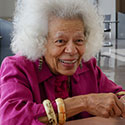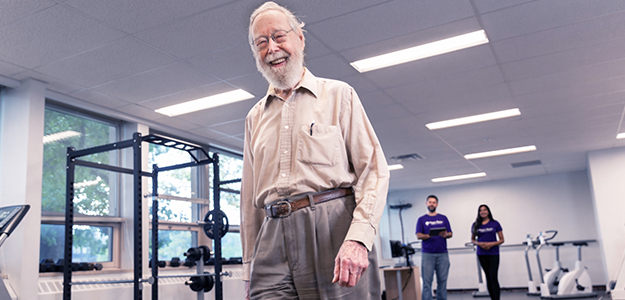Stories with Impact
SuperAging Canada Research
 Our researchers analyze physiological and behavioural markers of aging. The data is collected continuously using wearable mechano-acoustic biosensors, within the home environment, over extended time periods.
Our researchers analyze physiological and behavioural markers of aging. The data is collected continuously using wearable mechano-acoustic biosensors, within the home environment, over extended time periods.
Learn More
SuperAging Core Project
 This Master Observational Trial is a non-randomized, natural history, non-treatment study led by faculty from the Unversity of Chicago.
This Master Observational Trial is a non-randomized, natural history, non-treatment study led by faculty from the Unversity of Chicago.
Learn More
SuperAging Project 1
 Researchers involved in this project are examining how SuperAging is affected by physical activity, life-space mobility, sleep and social engagement.
Researchers involved in this project are examining how SuperAging is affected by physical activity, life-space mobility, sleep and social engagement.
Learn More
SuperAging Participant Information
 Find out what it is like to participate in the SuperAging studies. Explore inclusion and exclusion criteria, timelines and what to expect when you get involved.
Find out what it is like to participate in the SuperAging studies. Explore inclusion and exclusion criteria, timelines and what to expect when you get involved.
Learn More
News and Updates

Western researchers unlocking secrets to healthy aging
Population studies show adults over 80 are the world’s fastest growing demographic and in Canada, they are quickly outpacing other age groups. Yet, despite this surge, society is woefully unprepared in terms of health care, housing, accessibility and social programming. Enter the SuperAgers.
- They weren’t looking for love in their 70s, but their late-in-life romance may just have prolonged their lives
- Cover Story: Inside the Brains of Super Agers
- Study finds more clues as to why ‘SuperAgers’ have better brains
- Researcher leads first-ever study of Canadian ‘SuperAgers’
Land Acknowledgement
We acknowledge that Western University is located on the traditional lands of the Anishinaabek (Ah-nish-in-a-bek), Haudenosaunee (Ho-den-no-show-nee), Lūnaapéewak (Len-ahpay- wuk) and Attawandaron (Add-a-won-da-run) peoples, on lands connected with the London Township and Sombra Treaties of 1796 and the Dish with One Spoon Covenant Wampum. This land continues to be home to diverse Indigenous peoples (e.g. First Nations, Métis and Inuit) whom we recognize as contemporary stewards of the land and vital contributors of our society.



